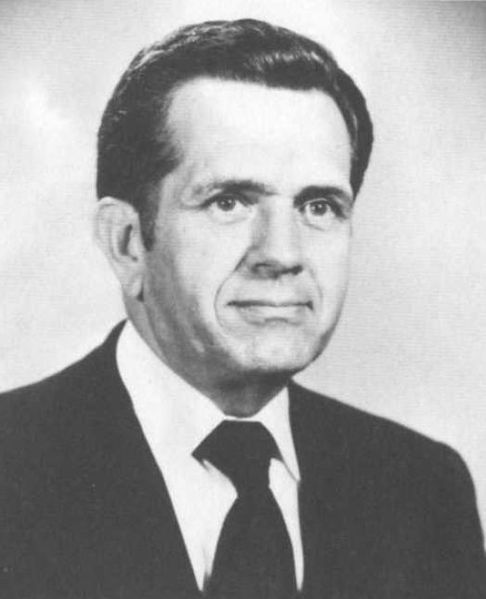
(Wikimedia Commons public domain photograph)
I first met Elder Boyd K. Packer when he came to Switzerland during a time that I was serving in the office of the Switzerland Zürich Mission.
One of the first things that he did was to take a tour of the mission headquarters. When he came into my office, he was standing, with my mission president, between me and the large bulletin board that covered most of one of the walls of my personal office. It suddenly occurred to me, though, that I wanted to stand between him and the bulletin board: He looked around the room and then turned his attention to the bulletin board. Among the many things that I had on it were a fairly large image of the Savior and, next to that, a small photograph of Pope Paul VI, the then-current pontiff of the Catholic Church. Elder Packer looked at the bulletin board. Then he moved closer to the two portraits, which were in the lower right-hand corner of the board. He bent over and looked more closely. Then he stood up, looked at me, and commented: “I bet you wish you’d taken that down yesterday, don’t you?”
That evening, the mission home staff were invited to join with Elder Packer and our president and his wife for dinner. While we waited for the table to be ready, we sat in the president’s living room and spoke with the visiting apostle. Eventually, our mission president came out to get us. “Well, Elder Packer,” he said, “I hope that you’re getting to know the missionaries.” “Yes,” Elder Packer responded. “I know them better than they think I do.”
During dinner, my mission president made a crack — he was given to rather clever wisecracks and puns — about my already receding hairline. (I was precocious in that regard, if in no other.) I honestly don’t remember what the joke was. My feelings were not hurt; I’ve never been sensitive on the matter of hair, and my mission president, I’m sure, knew that. (He was one of the kindest and gentlest men I’ve ever known; it was perhaps his most outstanding quality, and he had many good qualities.) We all laughed. Except Elder Packer, who was sitting at one end of the table, facing us all. “When I was a mission president,” he commented when the chuckles subsided, “I didn’t permit humor at the expense of the missionaries.” I had not been embarrassed at the joke, but I was embarrassed for my mission president at that low-key rebuke. (Years ago, I read an article about Elder Packer in which he was asked what his ambition had been when he was a child. I would guess that the person asking the question expected something like “a fireman” or “a rodeo cowboy” as an answer. Elder Packer’s reply, though? “I wanted to be good.” I can well believe it.)
Elder Packer was in town for a conference of the one German-speaking stake in Switzerland at the time. I was assigned to translate for him. Not to translate his remarks into German but, via a microphone and a small earpiece, to translate all of the other conference speeches into English for him. As I recall, we had a Saturday evening session and perhaps two Sunday sessions. I remember being completely exhausted by the conclusion of the conference. Sometimes, toward the end, with long German sentences involving words like daß that kicked their verbs to their conclusions, I could scarcely remember what the sentences were about by the time I heard those concluding verbs. I paraphrased more and more, especially when the speakers were telling stories or jokes. But Elder Packer was appreciative and complimentary, and I survived.












